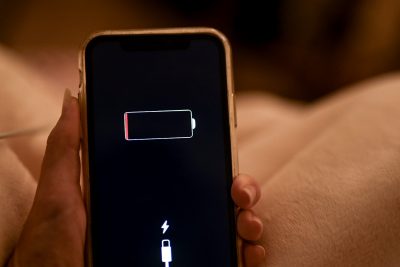
With badge compliance checkpoints gatekeeping Boston University dining halls, the George Sherman Union and residence halls, technical problems are adding new stresses to students’ daily lives.
COVID-19 compliance badges can only be accessed through Patient Connect, which can sometimes present technological issues that prevent students from accessing BU spaces with checkpoints.
Although residence halls have solutions to students’ technology issues, the GSU will not allow students inside unless they can present a valid green badge, according to CAS freshman Toni Santiago, who works as a GSU badge checker.
“We usually just turn them away, sadly,” Santiago said. “It’s nothing much that we can do.”
Santiago said she empathizes with her peers who might have phone troubles, but that she has to do her job.
Taha Dawood, a freshman in CAS, said although he recognizes the importance of compliance, he has encountered obstacles under the enforcement system. He had received his COVID-19 test outside of the BU testing system before returning to campus after Thanksgiving break, he said, so his badge remained blue.
“I understand to an extent the importance of getting tested,” Dawood said, “but I did get tested, but even still I couldn’t get into my dorm.”
The security desk directed him to get another test before entering the building, which he did. However, Dawood said, he was worried he would not make it to Warren Towers in time for his badge to turn green, and his phone was at 1-percent battery.
“They were really telling me that ‘you have to wait till it turns green,’” Dawood said.
BU spokesperson Colin Riley said if a student’s phone dies, residence security guards will allow students to enter if they either charge their phones at the security booth, or go up to their rooms under the condition that they will return when their phone is charged.
“We know that people’s batteries die,” Riley said. “The point is not to keep people away … it is to keep people safe.”
Melissa Loftus, a junior in CAS, said she has not dealt with her phone dying when she tries to enter a building, but she can see where it could cause concern.
She said she had issues returning to Warren last year when she had left her phone and Terrier ID inside because, as a transfer student, she had not memorized her BU ID number.
“I had to argue with the guards to get inside,” Loftus said. “So I can easily see it being a problem if you’re out for a while and your phone dies, just not being able to get back in the building.”
In addition to individual technology issues, the Healthway site has crashed several times this semester. In the event of a site crash, Riley wrote in an email, security guards are directed to allow students inside residence halls without showing their badges, as long as they have swipe access.
There are currently no plans for an alternative to the green badge system, Riley wrote.
Dawood said he thinks linking compliance to students’ ID cards would be a preferable method of ensuring safety without involving technology.
“I think that would be so much easier,” Dawood said, “instead of having to pull out your phone to load Patient Connect every single time.”
Loftus said another solution could include a system that logs student compliance for BU employees to check via a quick search.
“If they could look your name up and see if you’re compliant,” Loftus said, “that might be useful for everybody.”
Riley said the administration understands the circumstances of this semester and aims to ensure everyone is safe and healthy.
“The whole purpose is to make sure everyone is doing what they need to make sure they are compliant,” Riley said. “It has been a very tough semester and our housing security are very understanding.”
Nick Kolev contributed to the reporting of this article.























































































































